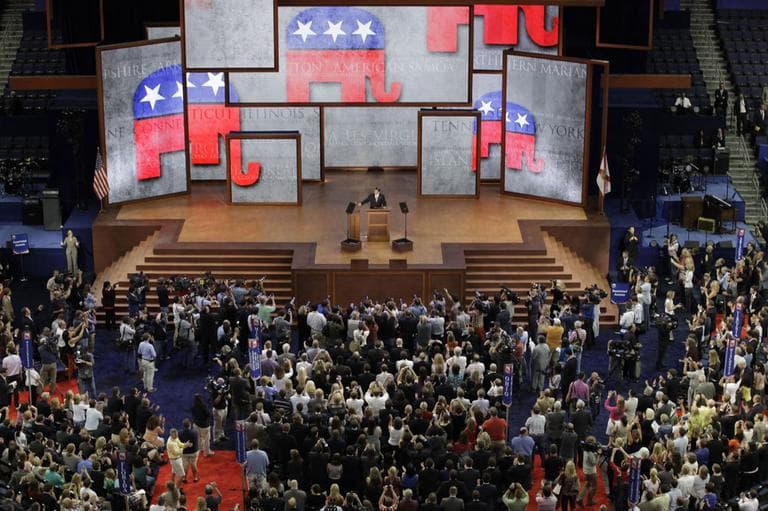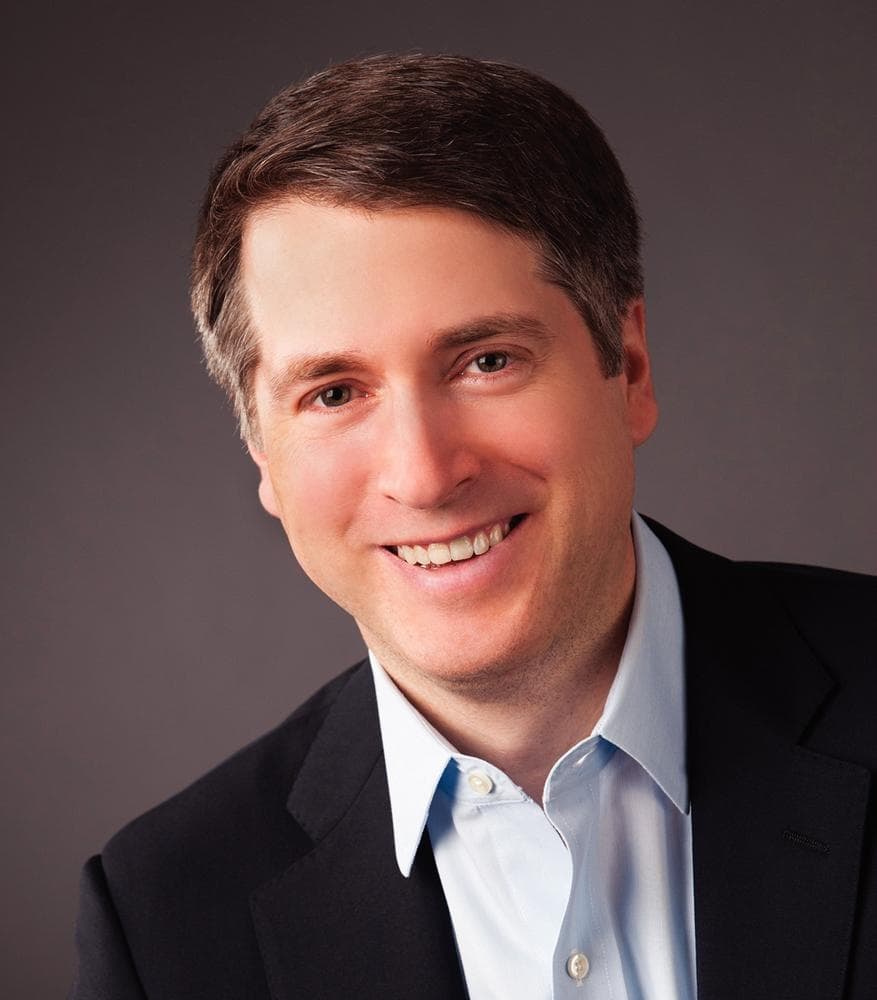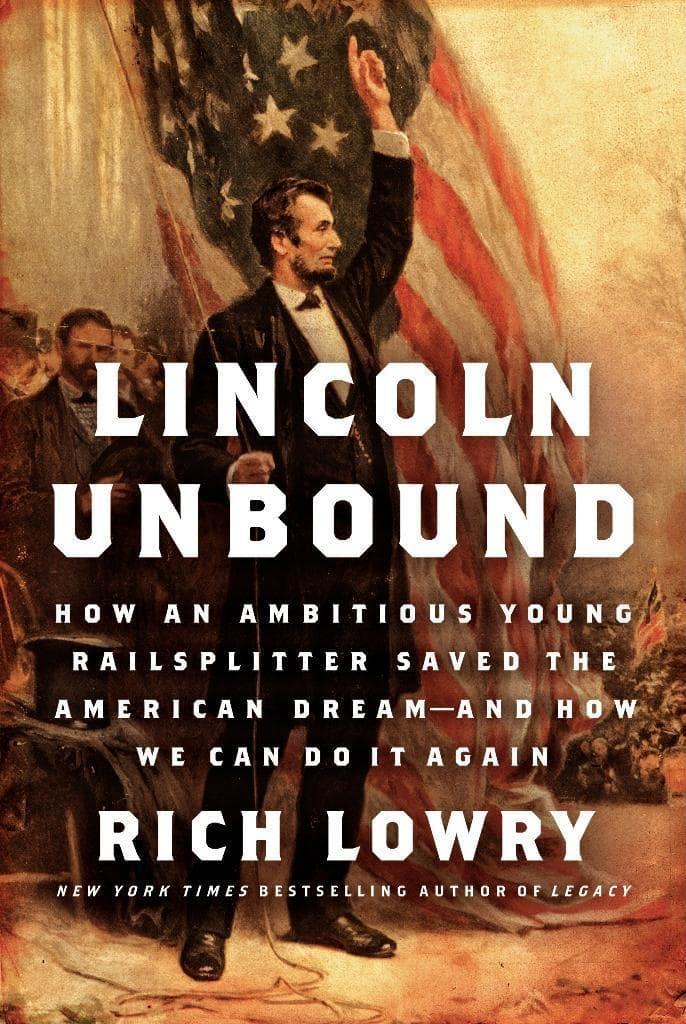Advertisement
Rich Lowry On The Republican Party And Abraham Lincoln
ResumeConservative National Review editor Rich Lowry on the Republican Party, from Abe Lincoln’s time to today’s Tea Party tensions.

Rich Lowry is a big, smart conservative thinker and editor at The National Review with a long view and long list of worries about his country and his party, the Republican Party.
He’s gone back to the ur-Republican, Abraham Lincoln, to refresh some compass settings, to think about equity and opportunity and effort, about rich and poor and "the race of life," about Tea Party and Ted Cruz and modern conservative values.
He wants to make the GOP the "aspirational" party again.
Up next On Point: National Review editor Rich Lowry on the GOP and Honest Abe.
-- Tom Ashbrook
Guests

Rich Lowry, journalist and editor of The National Review. (@RichLowry)
He is the author of the new book "Lincoln Unbound: How An Ambitious Young Railsplitter Saved The American Dream — And How We Can Do It Again." Read an excerpt below.
He is also the author of "Legacy: Paying The Price For The Clinton Years."
Jack Beatty, On Point news analyst and author of "Age of Betrayal: The Triumph of Money in America 1865-1900."
From Tom's Reading List
National Review: Lincoln Defended — The Case Against The Critics Of Our 16th President — No 19th-century figure can be an exact match for either of our contemporary competing political ideologies, but Lincoln the paladin of individual initiative, the worshiper of the Founding Fathers, and the advocate of self-control is more naturally a fellow traveler with today’s conservatives than with progressives.
Politico: Report: How GOP Lost Young Voters — The study slams some Republicans’ almost singular focus on downsizing Big Government and cutting taxes; candidates’ use of offensive, polarizing rhetoric; and the party’s belly-flop efforts at messaging and outreach, even as the report presents a way forward and, at times, strikes an optimistic tone.
Time: GOP Fights To Rebrand The Party Of No -- "After several days of debating how to restore their party’s brand, Republican leaders left a party confab in Los Angeles last week in agreement that they can no longer be 'the party of no.' But they were less clear on what to say 'yes' to."
Book Excerpt
From LINCOLN UNBOUND by Rich Lowry Copyright © 2013 by Rich Lowry. Reprinted courtesy of Broadside Books, an imprint of HarperCollins Publishers.
Introduction "An Inestimable Jewel": Lincoln’s America
"He knew the American people better than they knew themselves."
-- Frederick Douglass, “Oration in Memory of Abraham Lincoln,” 1876

In the summer of 1864, President Abraham Lincoln welcomed the 166th Ohio Regiment to the White House. His words that day didn’t make it onto the Lincoln Memorial. No schoolchildren ever recited them. But they capture the essence of Lincoln and of his idea of America.
“I suppose you are going home to see your families and friends,” he said by way of greeting the regiment. These men were representatives of the Union army, whose camps and hospitals he visited, who were fighting and suffering for the Union and who would vote for him in overwhelming numbers in the November election, a contest that, at that moment, Lincoln believed he would lose. The day after seeing the regiment on August 22, Lincoln wrote his “blind memorandum” stipulating that it is “exceedingly probable that this Administration will not be re-elected.”
The Ohio troops had been mustered for a hundred days in the spring and had done garrison duty around Washington, D.C. Lincoln offered the soldiers “sincere thanks for myself and the country,” and then got to the point. “I almost always feel inclined, when I happen to say anything to soldiers,” he told them,
“to impress upon them in a few brief remarks the importance of success in this contest.”
“It is not merely for to-day,” he said of the significance of the war, “but for all time to come that we should perpetuate for our children’s children this great and free government, which we have enjoyed all our lives.” This was a more pedestrian expression of the rousing sentiment from the finale of the Gettysburg Address the prior November—“that government of the people, by the people, for the people, shall not perish from the Earth.”
“I beg you to remember this,” he continued, “not merely for my sake, but for yours. I happen temporarily to occupy this big White House. I am a living witness that any one of your children may look to come here as my father’s child has.” Lincoln characteristically refrained from saying “as I have,” with its whiff of immodesty. Free government is so valuable, he insisted, because it affords us an open, fluid society where anyone can ascend to the highest office in the land. Or at least ascend higher than where he started.
“It is in order,” Lincoln said, “that each of you may have through this free government which we have enjoyed, an open field and a fair chance for your industry, enterprise and intelligence; that you may all have equal privileges in the race of life, with all its desirable human aspirations. It is for this the struggle should be maintained, that we may not lose our birthright—not only for one, but for two or three years. The nation is worth fighting for, to secure such an inestimable jewel.”
The priceless treasure is opportunity. It is the cause so dear that it was worth a conflagration that made the country, in the title of historian Drew Gilpin Faust’s moving book on wartime death, “this republic of suffering.” In Lincoln’s telling, America exists to give all people the chance to rise. We are, by birthright and through our free institutions, a nation of aspiration.
This theme wasn’t patriotic pap for the boys. Lincoln believed it in the marrow of those strong bones with which he had labored all during his youth. It had suffused his determination, as a boy and into his early adulthood, to read and to learn, so he could do something besides chop and plow all his life. It had been the touchstone of his politics as a Whig and then as a Republican, in the Illinois House of Representatives, in Congress, and in his antislavery leadership in the 1850s that marked the beginning of the heroic phase of his career.
Tweets From During The Show
[storify url="http://storify.com/OnPointRadio/lowry-republican-party" width="500"]
This program aired on June 12, 2013.